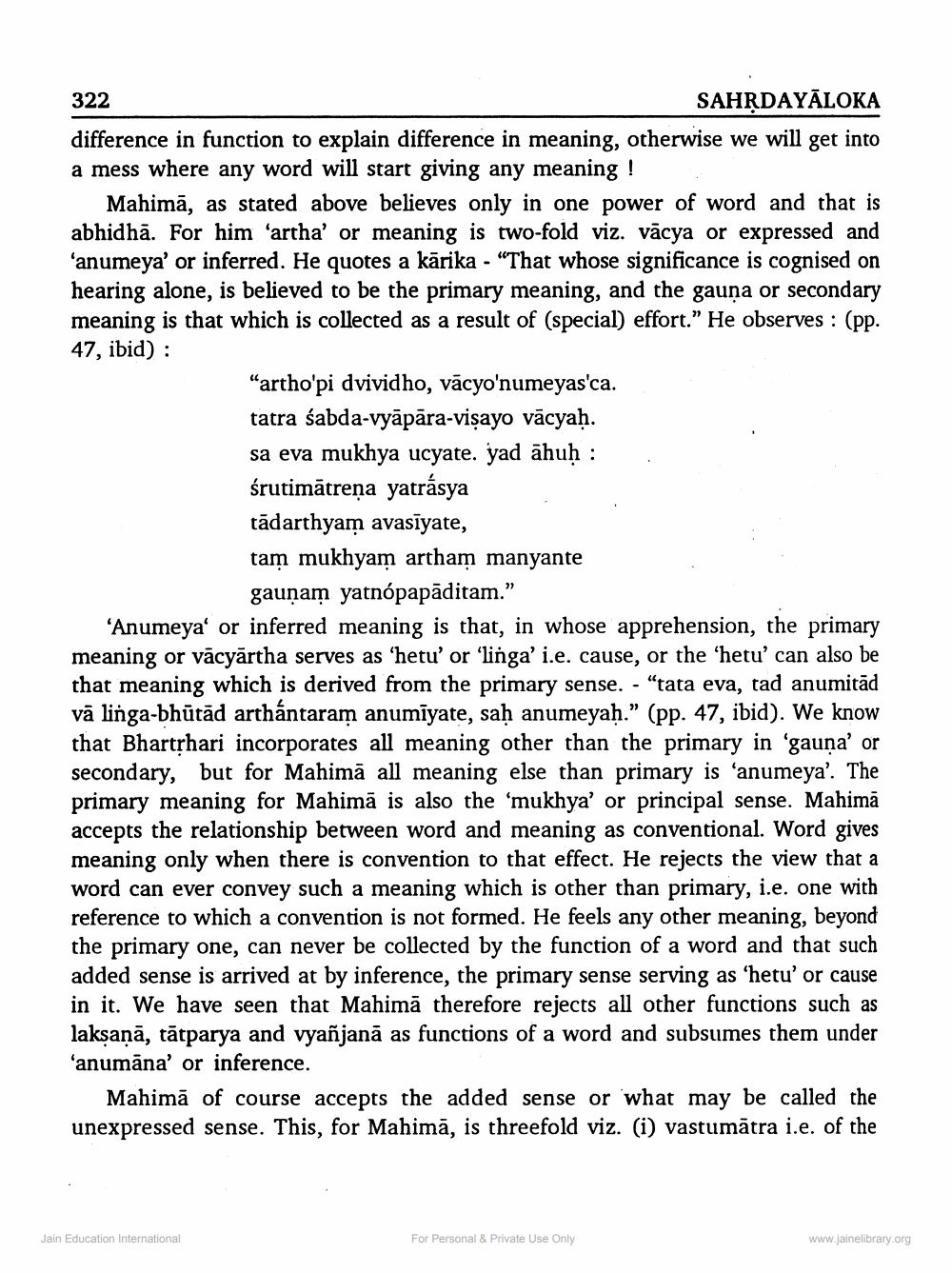________________
322
SAHRDAYĀLOKA difference in function to explain difference in meaning, otherwise we will get into a mess where any word will start giving any meaning !
Mahimā, as stated above believes only in one power of word and that is abhidhā. For him artha' or meaning is two-fold viz. vācya or expressed and 'anumeya' or inferred. He quotes a kārika - "That whose significance is cognised on hearing alone, is believed to be the primary meaning, and the gauņa or secondary meaning is that which is collected as a result of (special) effort.” He observes : (pp. 47, ibid) :
"artho'pi dvividho, vācyo'numeyas'ca. tatra sabda-vyāpāra-visayo vācyaḥ. sa eva mukhya ucyate. yad āhuḥ : śrutimātrena yatrásya tādarthyam avasīyate, tam mukhyam artham manyante
gauņam yatnópapāditam." 'Anumeya' or inferred meaning is that, in whose apprehension, the primary meaning or vācyārtha serves as 'hetu' or 'linga' i.e. cause, or the 'hetu' can also be that meaning which is derived from the primary sense. - "tata eva, tad anumitād vā linga-bhūtād arthántaram anumiyate, sah anumeyah." (pp. 47, ibid). We know that Bhartphari incorporates all meaning other than the primary in 'gauna' or secondary, but for Mahimā all meaning else than primary is 'anumeya'. The primary meaning for Mahimā is also the 'mukhya' or principal sense. Mahimā accepts the relationship between word and meaning as conventional. meaning only when there is convention to that effect. He rejects the view that a word can ever convey such a meaning which is other than primary, i.e. one with reference to which a convention is not formed. He feels any other meaning, beyond the primary one, can never be collected by the function of a word and that such added sense is arrived at by inference, the primary sense serving as 'hetu' or cause in it. We have seen that Mahim, therefore rejects all other functions such as laksanā, tātparya and vyañjanā as functions of a word and subsumes them under 'anumāna' or inference.
Mahimā of course accepts the added sense or what may be called the unexpressed sense. This, for Mahimā, is threefold viz. (i) vastumātra i.e. of the
Jain Education International
For Personal & Private Use Only
www.jainelibrary.org




